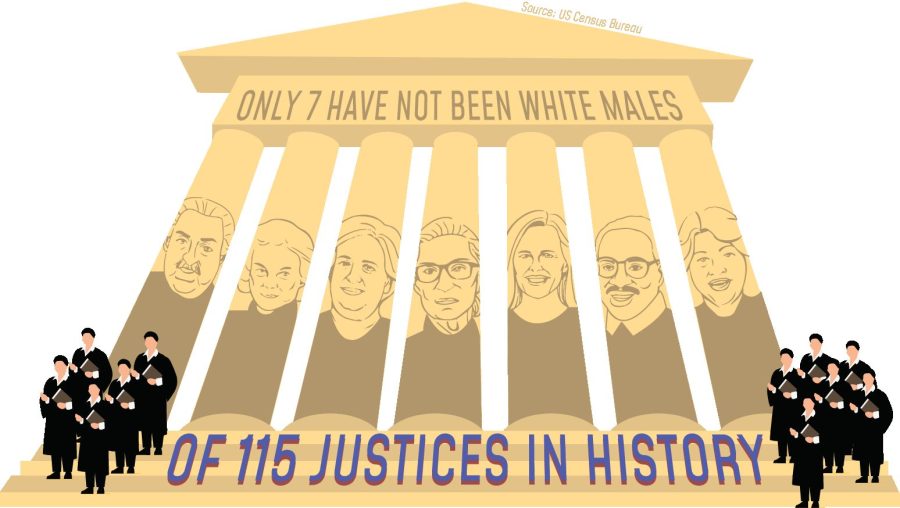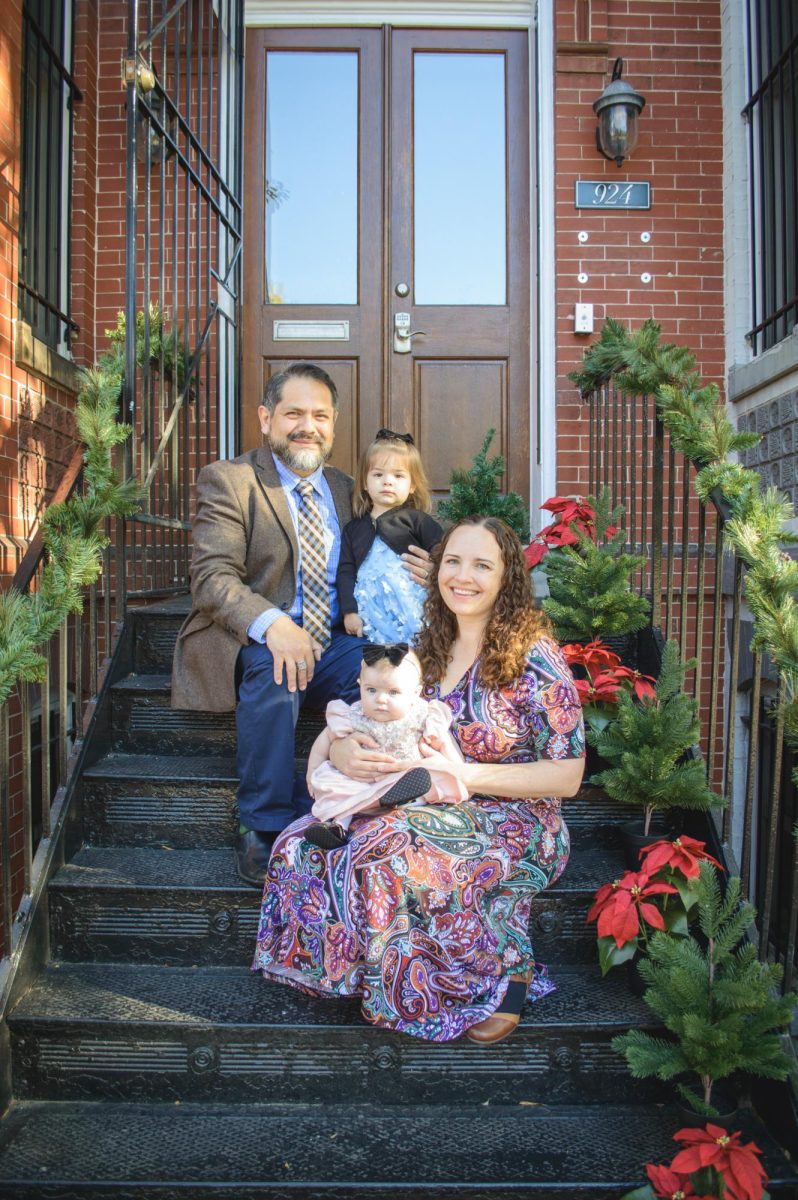In late March, junior Kyra Alston sat nervously in the kitchen of her grandmother’s house. Surrounded by her family, she watched as then Supreme Court nominee Ketanji Brown Jackson fielded questions at her confirmation hearing, the group cheering as the future justice handled each inquiry.
“She’s a black woman, and she’s the nominee for the Supreme Court,” Alston said. “So, in terms of the possibility and potential of what that means for me, it’s great to see.”
On April 7, Ketanji Brown Jackson became the first African American woman to be appointed to the Supreme Court. Since the origin of the Supreme Court in 1789, 108 of the 115 total justices have been white males. But in the last 55 years, the court has added five women, including the first Hispanic judge, and two African American men.
Social science teacher Tatiana McKinney is glad that the Supreme Court is beginning to look more like America’s demographics.
“I think it’s a really cool opportunity to see someone who looks like me, an African American female, in that place,” McKinney said.
However, McKinney also believes that with that high position will come a considerable number of obstacles.
“No matter what her first case will be, I think there’s going to be a lot of political tinge around it because of where we are in this nation, in regards to the divisiveness,” McKinney said.
“People are going to just assume, given some of the past decisions on her previous cases, that she’s going to bring her opinion into every single case.”
However, the Jackson family is no stranger to challenges. Both of Jackson’s parents lived in the Jim Crow south and attended segregated primary school. When Jackson was in high school, her guidance counselor told her not to set her sights too high after she expressed her aspirations to attend Harvard.
“She’s an African American woman who doesn’t come from a kind of detailed, wealthy background,” AP U.S. Government teacher Brandon Burmeister said. “I think those things add a different perspective.”
After graduating cum laude from Harvard Law, Jackson served as a law clerk for a few years, even clerking under former Justice Stephen Breyer, whom she is replacing. Soon after, Jackson became an assistant federal public defender, making her the first public defender to be appointed in Supreme Court history. While some see her past as a public defender as a drawback, Burmeister thinks it brings a fresh viewpoint to the Supreme Court bench.
“Trial [defense] lawyers view each case as an individual case,” Burmeister said, “That’s refreshing because each case is a new blank slate.”
However, this background is also what many Republican senators critique about Jackson. Many dissenters, including Senator Ted Cruz, criticized her representation of Guantanamo Bay prisoners. Despite opposition from most Republican senators, Jackson was appointed to the court with a 53-47 majority vote. In a poll released by Gallup, 58% of Americans supported her nomination, while 30% were against it. The last nominee to have that high of an approval rating was Chief Justice Roberts in 2005.
“In this day and age that’s a monumental thing, as polarizing as the American public is,” Burmeister said.
Jackson’s appointment breaks racial barriers that have been around since the beginning of America. To many, her achievement has shifted what’s possible.
“Future generations are able to see that, not just hear about it, but actually see it,” Alston said. “She made it, you know, she’s there.”
















